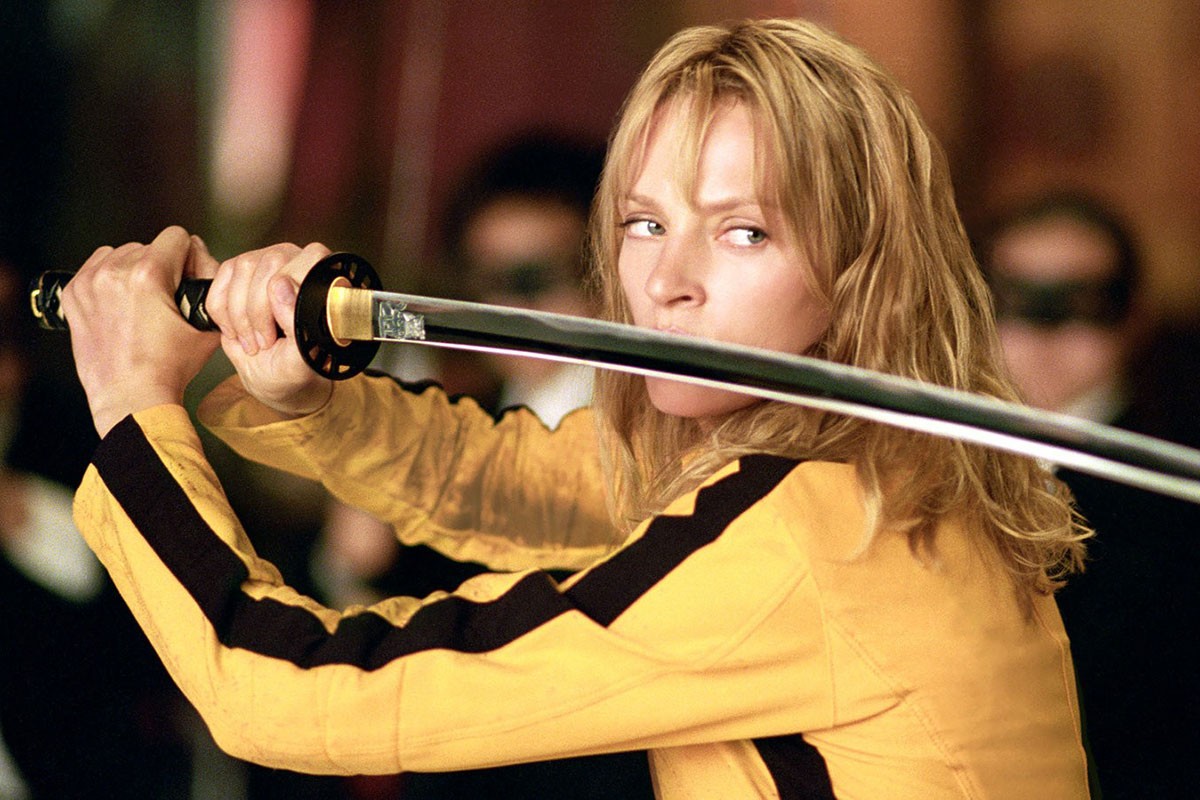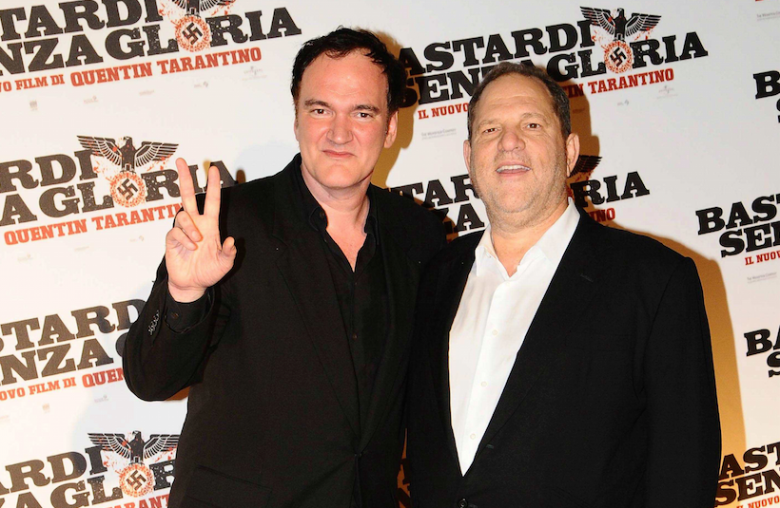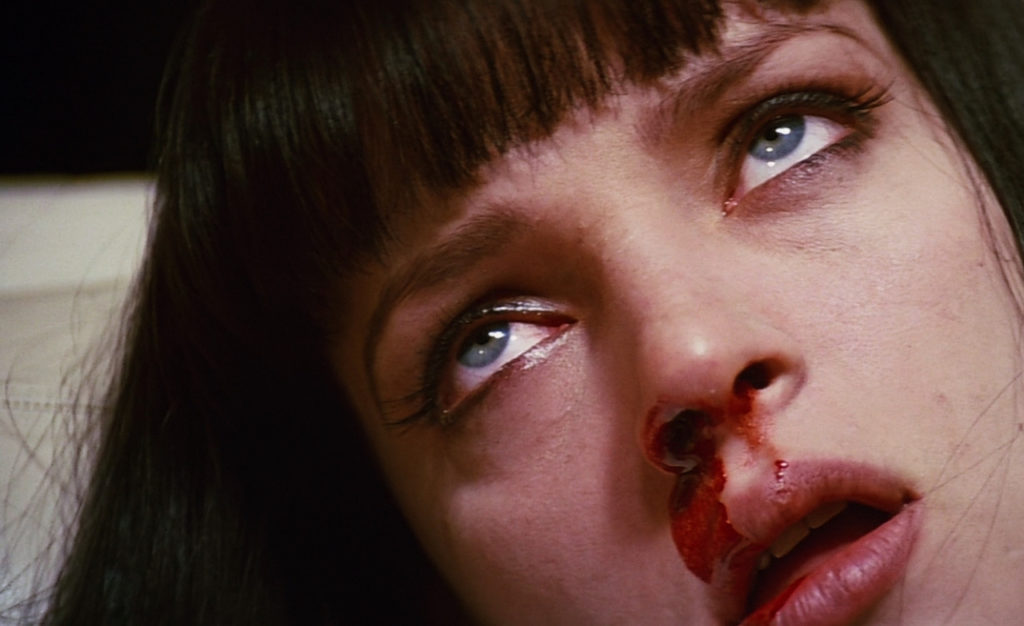Quentin Tarantino has revealed that he and Uma Thurman have been discussing a revival of the Kill Bill series. This news comes after wave after wave of controversies that seem unable to overthrow Tarantino from his place at the top.

Appearing on MTV’s Happy Sad Confused podcast, the director disclosed that a Kill Bill Volume. 3 could very much be on the cards.
“Me and Uma have talked about it recently, frankly, to tell you the truth,” said Tarantino. “I have thought about it a little further. We were talking about it literally last week. If any of my movies were going to spring from my other movies, it would be a third Kill Bill.”
The original films, Kill Bill: Volume 1 and Kill Bill: Volume 2 were released in 2003 and 2004 respectively. If the third film were to go ahead, Uma Thurman would reprise her iconic role as series protagonist, The Bride.
This is unexpected news after the director recently said that his most recent film Once Upon a Time in Hollywood could be his last, bringing his total filmography to nine.
“I think when it comes to theatrical movies, I’ve come to the end of the road. I see myself writing film books and starting to write theater, so I’ll still be creative… I’ve given all I have to give to movies.”
This is also surprising news considering Uma Thurman’s past call-outs of his behaviour.
Time will tell when Tarantino will decide to pull the plug on his directing career. Perhaps his plan to move away from cinema comes as a response to the changing face of the industry and the increasing criticism of his place within it.
#MeToo and Harvey Weinstein

During the viral spread of the #MeToo movement in 2017, Tarantino’s long-term alliance with disgraced producer and sexual predator Harvey Weinstein was brought into the limelight.
In a 2017 New York Times interview, he admitted that he knew about sexual assaults perpetrated by Weinstein but failed to act,
“There was more to it than just the normal rumors, the normal gossip, it wasn’t secondhand. I knew he did a couple of these things. I wish I had taken responsibility for what I heard. If I had done the work I should have done then, I would have had to not work with him.”
Weinstein and his company Miramax distributed all of Tarantino’s films up until The Hateful Eight, with the director admitting that he dismissed what he had heard about Weinstein, even after then-girlfriend Mira Sorvino told him about the abuse she had sufferred,
“I chalked it up to a 50s-60s era image of a boss chasing a secretary around the desk,” he said. “As if that’s OK. That’s the egg on my face right now.”
This speaks to the level of systemic sexism and accepted sexual harassment rife within the entertainment industry (and in every other industry), and how much work there is still left to do to correct the imbalance of power.
Not Just Violent Imagery

At the beginning of last year, it was revealed that Tarantino was not just an onlooker to this kind of abuse, he also participated in it. Known for his films’ hyper-violent imagery and content, Tarantino has perpetrated violence himself, on the sets of his movies.
Uma Thurman alleged that Tarantino forced her into dangerous conditions on set during the filming of Kill Bill, accusing the director of bullying her into driving an unsafe car that then crashed. Thurman described the events as “dehumanisation to the point of death”.
Not long after, speculation about his future in the industry grew when it came to light that he had also spat in Thurman’s face and choked her with a chain during filming. In addition, he reportedly strangled Diane Kruger while filming Inglourious Basterds.
Oscar-nominated actor Jessica Chastain tweeted at the time,
“We don’t need abuse in order to be powerful … how many images of women in media do we celebrate that showcase abuse? When did this become normalized ‘entertainment’?”
Savage violence against women is a common thread across almost all of Tarantino’s films. However, it’s clear that violence against men is also a consistent theme.
There has also been widespread condemnation of his use of the n-word in Django Unchained. Director Spike Lee criticised the film, saying,
“American Slavery Was Not A Sergio Leone Spaghetti Western. It Was A Holocaust. My Ancestors Are Slaves. Stolen From Africa. I Will Honor Them.”
In light of all of this, it’s hardly surprising that audio has surfaced from a 2003 Howard Stern interview of him disgustingly defending the actions of pedophile film director Roman Polanksi, whose life is partially the subject of 2019’s Once Upon a Time in Hollywood.
The controversies keep coming, and Tarantino’s career keeps going.
Once Upon A Time
The most recent controversy was in relation to the director’s latest film, with this awkward moment at a press conference when a reporter asked why Margot Robbie had been given so few lines in the film:
Quentin Tarantino snapped at a female reporter from The New York Times who asked why Margot Robbie wasn’t given more to say or do in his latest film “Once Upon a Time in Hollywood" https://t.co/xACQXjyBu8 pic.twitter.com/5GraEtaSyw
— Variety (@Variety) May 22, 2019
Unfortunately it seems that after every knock, Tarantino’s career does not suffer any lasting damage. Does Hollywood have the memory of a goldfish, or are there more sinister forces at play here, keeping men in their positions of power despite their bad behaviour?
As long as Tarantino’s films generate profit, they will continue to be made.
As gender-equality activist Melissa Silverstein put it,
“There are a lot of men in our culture who are put up to us as visionaries and auteurs. The stories that we’ve been told about them are stories that are based on a culture that is now no longer acceptable. We all want to ask the question, why are these people and why are these films the narrative of our culture? We are saying we want different kinds of narratives, and we want different kinds of stories.”
Subscribe to FIB’s newsletter for your weekly dose of music, fashion and pop culture news!






